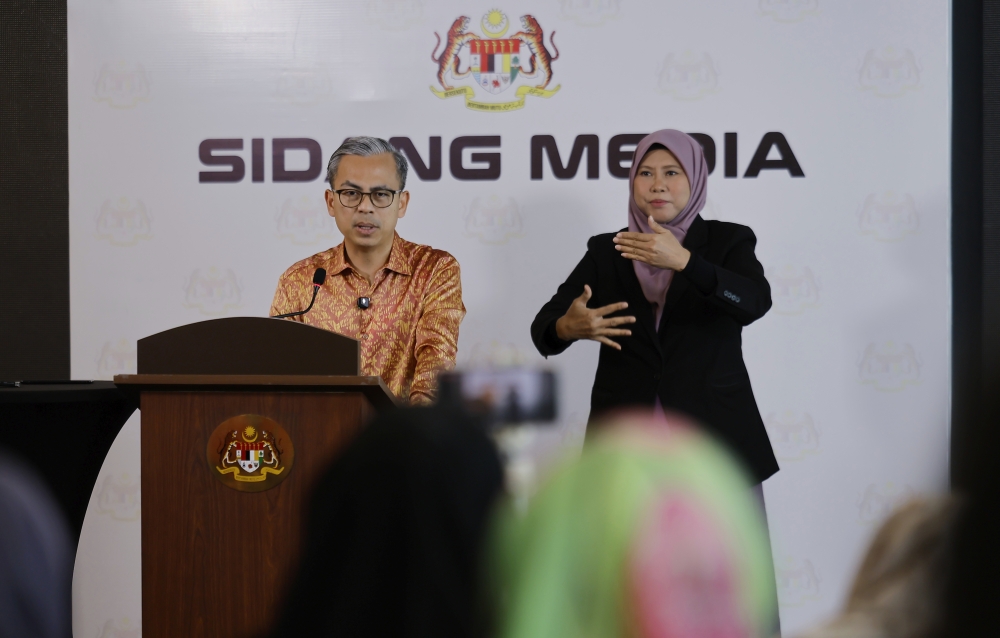FEBRUARY 24 — In recent months, I have been strongly criticised for my decision to be in the grey area regarding certain things.
Before I start, I think it is important for me first to explain what I mean by “being in the grey area.” For many people, it means being a fence-sitter or uncertain. In the context of this column, it means already having your own convictions while still allowing room for compromise and discourse.
To those who have unyielding opinions, “being in the grey area” sounds a lot like giving the opposition an outlet to share their “dangerous” or “wrong” ideas. To them, this is unacceptable. However, I believe that it is the better way to achieve social change and progress.
Have you ever wondered why some people are so stubborn and refuse to change their minds even after they have been presented with the necessary evidence?
When our brains are experiencing a dissonance, we will seek out information that justifies our convictions. This subconscious tendency of confirmation bias will only strengthen our beliefs. This phenomenon is called the “backfire effect.”
In a world where information is readily given, the Internet helps in making sure that our beliefs may never be challenged. There will always be evidence supporting our ideas.
This is the reason why we may never win online arguments. As you get involved in a heated debate, you are pushing yourself and your opponent further into the backfire effect as the both of you pull out links, quotes, journals, and information to support each of your viewpoints.
In social psychology, the backfire effect can be considered a form of inoculation — a theory devised in the 1960s by William McGuire — which is a process in which one builds up resistance to influence, persuasion, or threats which may cause attitudinal change.
In other words, we have inoculated ourselves against differing opinions.
As social media progresses, expressions of these cognitive biases continues to elevate. Beliefs grow stronger when we talk about it with people who share them, and social media has made it easier for like-minded people to find each other. This creates a harsher polarisation of groups which ultimately results in a stronger “us vs. them” dynamic.
Do you realise that movements are growing more aggressive? For example, liberalism rises as conservatism rises and vice versa. It should be of no surprise. It is only the natural cause and effect of ideologies becoming more radical due to individual cognitive biases and social influences that have been enhanced and magnified by the use of social media.
When you understand how it happens, it seems as though the future is bleak. How do we achieve social change and progress if everyone is so unwilling to change their minds?
This is where being in the grey area is helpful.
Blaise Pascal, the philosopher who is best-known for Pascal’s Wager, thinks that before we disagree with someone, we have to first point out ways in which they are right. This lowers their defences and prevents them from digging their heels further into their positions.
To many people, this may sound like a blasphemous thing to do. The idea of compromise with the opposition should never be done. We have to make our stances clear. However, what they do not realise is that going on the offensive is not the best way to achieve change — it is merely the loudest.
Harsh tactics — like yelling, attacking, and name-calling — are counterproductive as they only strengthen the beliefs and stances of the opposition.
The best way to persuade someone to change their minds (at least into considering your opinion) is to lead them to discover a counterargument on their own accord. People are more likely to accept reasons that they have discovered themselves instead of those that were shoved towards them.
This has been proven in the transtheoretical model of behaviour change. Harsh tactics will completely demoralise those in the “precontemplation” stage from considering any change.
Do you now see why it’s extremely hard for people to come to a compromise online?
In my personal experience, I have been called a “fascist Nazi” by a feminist just for understanding and listening to the opposition despite my stern disagreement with their policies. This individual even went as far as to tacitly encourage acquaintances to cut ties with me.
There is a psychological phenomenon called “groupthink” which occurs within a group of people in which the desire for harmony and conformity results in an irrational decision-making outcome.
When a group is wrapped up in itself, and everyone only agrees with each other, no one bothers to stop and think about other perspectives.
Even if they did, the individuals do not voice out their opinions for fear of being alienated by their group, which happened to me in the above scenario.
The sad truth about this incident is the realisation that there are probably many more like-minded people like them who resort to using the same aggressive method. Is it any wonder why the opposition towards “Twitter feminists” is rising?
However, for every person who is unwilling to compromise, there are many more who are willing to engage in civil discourse with you. Do not lose hope.
By being in the grey area, you communicate better with the opposition, and this gives them the incentive to co-operate and compromise. I have gotten better reception from those who were once “enemies” ever since I decided to understand their viewpoint. In return, they try to understand me too.
Perhaps to many, a passive approach may seem ineffective, but in my humble opinion, it’s a better way to achieve social change and progress instead of yelling for it.
Let’s not forget that when it comes to many of the things we argue about — religion, politics, morality, etc. — there is no correct answer, only preferred ones.
Being in the middle means bearing the burden of criticism from both ends, but grey is the only colour that bridges black with white.
* This is the personal opinion of the columnist.






















